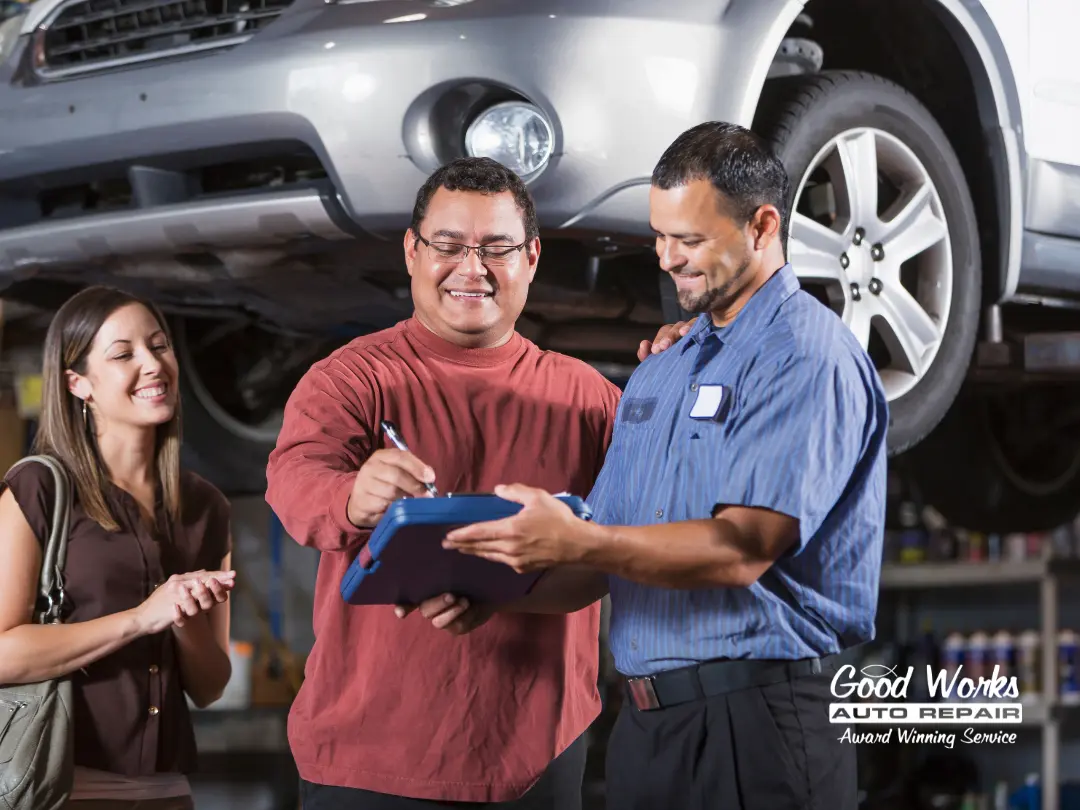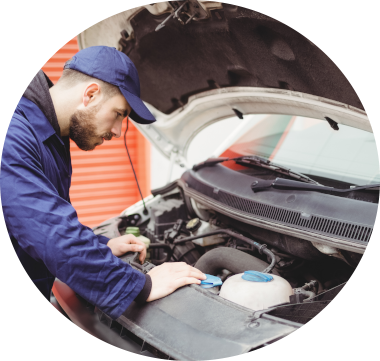All Categories
Featured
Brakes are probably one of the most important security attribute of any kind of automobile. Without reputable brakes, also one of the most effective automobile can become a threat when traveling. That's why routine brake inspections are a must for ensuring your automobile stops when you require it to. Following a correct brake examination schedule can not just maintain you safe yet also assist you stay clear of costly repair work. Below's an in-depth overview on how to properly check your brakes and what to look out for.
- The Significance of Routine Brake Inspections. Brakes undergo continuous damage with every usage, whether you're driving at broadband on the highway or travelling through city roads. Gradually, brake pads, blades, and various other parts put on down, which can impact stopping performance. Without routine inspections, you might not discover the gradual reduction in efficiency till it's far too late.
Routine brake examinations enable you to capture concerns early, guaranteeing that your brakes continue to be receptive, trustworthy, and secure. Timely examinations can likewise conserve you cash by addressing minor concerns before they end up being expensive repair work.
- Usual Indications That Your Brakes Need Focus. While regular brake evaluations are vital, there are some indication you can watch out for to recognize when it's time to set up a check-up:
Squeaking or Grinding Appears: Piercing squeaks or grinding sounds when applying the brakes are often signs that your brake pads are worn and require substitute. Vibration or Pulsation: If you feel resonances in the guiding wheel or the brake pedal, it might suggest warped rotors, which might need resurfacing or replacing. Soft or Squishy Brake Pedal: If the brake pedal feels uncommonly soft or mushy, there might be air in the brake lines or a problem with the master cylinder. Pulling to One Side: If your automobile draws away while braking, this can be brought on by unequal brake pad wear or an issue with the brake fluid. Enhanced Quiting Range: If it takes longer to stop than common, it might show that the brake pads are worn, the fluid is low, or the blades are damaged. If you see any one of these symptoms, it's finest to have your brakes examined quickly.

- Key Parts Checked During Brake Inspections. Throughout a brake inspection, a professional will inspect numerous essential components of the braking system to make sure every little thing is functioning appropriately. Right here are the key parts involved:
Brake Pads: The most common factor for inadequate stopping performance is damaged brake pads. Evaluating the density of the pads is a priority during every assessment. Brake Rotors: Rotors need to be smooth and without grooves or fractures. Any type of significant damages to the blades can cause jeopardized braking efficiency and uneven pad wear. Brake Liquid: Reduced or infected brake fluid can impair stopping efficiency. The professional will examine the fluid levels and quality and replace it if essential. Brake Lines and Tubes: Brake lines must be devoid of leaks or fractures. Any kind of damages to the lines can result in loss of brake liquid, bring about brake failing. Brake Calipers: The calipers apply stress to the brake pads. They ought to be checked for indicators of wear or leakages to ensure they are functioning correctly. Frequently checking these parts helps maintain your brake system in peak problem, enabling you to quit your cars and truck safely and efficiently.
- Just how Typically Should You Have Your Brakes Inspected? The general recommendation is to have your brakes inspected at the very least yearly or every 12,000 miles, relying on your driving behaviors. However, particular driving conditions may call for more regular inspections:
Heavy Traffic: If you frequently drive in stop-and-go web traffic, your brake pads will certainly wear down much faster. Hill Driving: Driving on high roads calls for even more frequent stopping, which can trigger your brakes to put on much more rapidly. Towing or Hauling Heavy Plenties: If you routinely lug hefty loads, your brakes will experience more anxiety and need more constant evaluations. If you discover any of the indication mentioned previously, do not await the next scheduled evaluation-- have your brakes inspected immediately.
- The Repercussions of Neglecting Brake Inspections. Ignoring routine brake examinations can cause severe consequences. A failing brake system could cause lowered stopping power, which raises your threat of crashes. Overlooking brake maintenance can likewise result in much more pricey repairs. As an example, if you postpone replacing used brake pads, the damage might reach the blades, causing the need for blades replacement, which is a much more expensive fixing.
In the most awful instance, driving with damaged brakes can lead to complete brake failing, placing you and various other drivers at danger. Routine brake evaluations are a little investment that can conserve your life and prevent expensive repair services.
- Final Thought: Keep Safe with Regimen Brake Inspections. Brakes are not something you desire to take opportunities with. A reputable stopping system is important for safe driving, and routine brake evaluations are an easy means to guarantee that your auto stops when you need it most. By staying on top of brake upkeep, expecting cautioning indicators, and having your brakes examined at the recommended intervals, you'll shield both your vehicle and your safety.
Don't wait up until your brakes start to fall short-- timetable regular brake assessments and maintain your car in optimal problem for years to find.
Latest Posts
Your One-Stop Marketing Partner
Discover Stunning Fencing Solutions in Action
Next-Level Marketing Expertise
